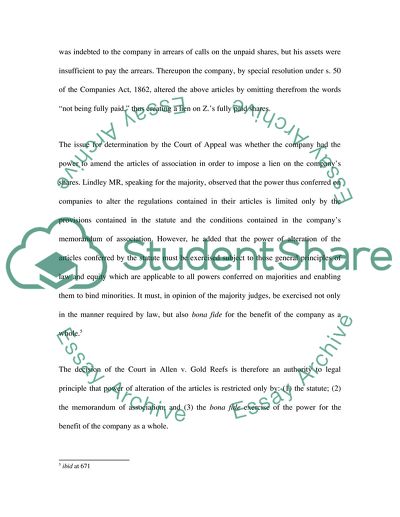Cite this document
(Alteration for Benefit of the Company: Allen v. Gold Reefs Essay, n.d.)
Alteration for Benefit of the Company: Allen v. Gold Reefs Essay. Retrieved from https://studentshare.org/law/1705522-company-law
Alteration for Benefit of the Company: Allen v. Gold Reefs Essay. Retrieved from https://studentshare.org/law/1705522-company-law
(Alteration for Benefit of the Company: Allen V. Gold Reefs Essay)
Alteration for Benefit of the Company: Allen V. Gold Reefs Essay. https://studentshare.org/law/1705522-company-law.
Alteration for Benefit of the Company: Allen V. Gold Reefs Essay. https://studentshare.org/law/1705522-company-law.
“Alteration for Benefit of the Company: Allen V. Gold Reefs Essay”, n.d. https://studentshare.org/law/1705522-company-law.


